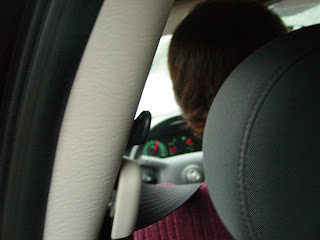Hard-Wired Morality
 This looks interesting.
This looks interesting.
University of Colorado, Boulder ecologist, Marc Beckoff, and philosopher, Jessica Pierce, have written a new book (Wild Justice) that examines morality as an adaptive strategy for helping aggressive and/or competitive species to live together in groups. Morality, in the form of empathy, cooperation and reciprocity, provides what Beckoff calls, the "social glue," for group living.
The authors cite evidence from around the world and across a variety of species, from mice to elephants, that support the claim that animals have an innate sense of fairness and empathy. For instance, experiments with rats have shown that they will refuse to obtain food if their actions will protect other rats from being harmed. As well, in play, dominate wolves will self-handicap and allow lower ranked wolves to bite them. Additionally, neurological evidence is presented that shows how some species have structures in their brains that are similar to those "empathy" areas in human brains.
This is a very interesting topic, and I just might have to put this book on my summer reading list. I agree that what we call morality today probably started out as an adaptive strategy for group living, because social networks were so important for survival across species. And as such, evidence for this "social glue" should be abundant in nature.
Such evidence for a hard-wired morality could have strong implications for us humans. For one, morality is often seen as a philosophical and/or religious concept. It sometimes seems like scientists have no business talking about moral issues. But this book could show that one doesn't need religion to explain while we feel empathy for others, have urges to be honest, and want to protect others from harm. Such feelings could be . . . dare I say it . . . instinctual. Yet I'm not sure whether I would agree that animals can tell the difference between right and wrong, not in the abstract sense that we mean those concepts. I really liked what Emory primatologist, Frans de Waal, said on the topic:"I don't believe animals are moral in the sense we humans are – with well developed and reasoned sense of right and wrong – rather that human morality incorporates a set of psychological tendencies and capacities such as empathy, reciprocity, a desire for co-operation and harmony that are older than our species. Human morality was not formed from scratch, but grew out of our primate psychology. Primate psychology has ancient roots, and I agree that other animals show many of the same tendencies and have an intense sociality."
Really cool, exciting stuff. Guess I'll have to pick the book up sometime.



4 comments:
"It sometimes seems like scientists have no business talking about moral issues. But this book could show that one doesn't need religion to explain while we feel empathy for others, have urges to be honest, and want to protect others from harm. Such feelings could be . . . dare I say it . . . instinctual."
Ah, but the interesting question (or at least the more important one) is not WHY we might feel the moral "ought," but rather, "does the moral ought actually exist?" Science might be able to construct a plausible story of why we feel certain moral inclinations; I am afraid it can't tell us why such feelings should be followed. It is a big jump from saying "we feel as if we should not murder" to "we should not murder." Science might shed some light on the former state of affairs, but it can't really touch the latter.
With that aside, these studies are fascinating. I would be interested to know more about the extent of the "moral" behavior demonstarted in animals. Is it limited to cooperation, or does it pass into altruistic-like acts?
Peace
Hey Adam,
Thanks for the comment! And I agree with you completely. I don't think lower animals can actually tell the difference between right and wrong, because they don't have the cognitive capacity for abstract reasoning. And I think that this ability for abstract reasoning is essential for the "why we should follow the rules" question that you are bringing up. So yeah, I think that science is definitely helping us discover more and more about morality in all sorts of ways, but the question of why we should follow various moral rules is still in the realm of philosophers.
Also, as far as I know, the book does cover altruism a bit . . . even altruistic acts outside of one's species. For example, it's often cited that dolphins will save humans from sharks. So, the book is supposed to cover that stuff, but I'm interested in how well it's covered.
Thanks again!
-Ricky
So Flipper is based on actual events:)
Sweet.
Nice post. thanks for sharing..
regards
Photogrammetry mapping
Post a Comment